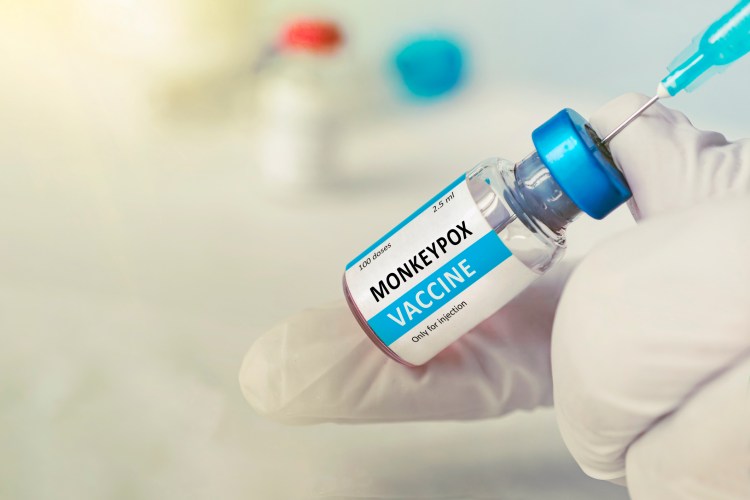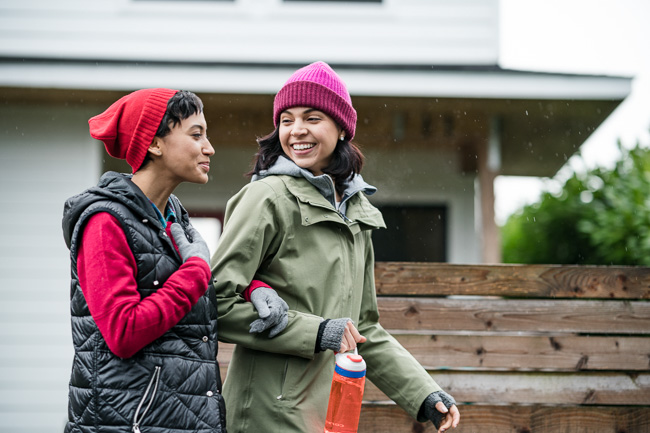The U.S. has declared the monkeypox (MPV) outbreak a public health emergency. With case numbers growing across the globe, many of us have questions about how to protect ourselves and our families.
What is MPV?
MPV is a viral disease that can cause rashes and other symptoms. It does not commonly occur in the U.S., but there is currently an outbreak of MPV with cases spreading in Washington, Alaska, and across the United States, as well as in many other countries. In 2022, cases of MPV began to be identified in the United States that could not be directly linked to international travel or to imported animals. Scientists are working to learn more about the epidemiology of MPV and how it is spreading.
What are the symptoms?
Symptoms of MPV can include:
- Fever
- Headache
- Muscle aches and backache
- Swollen lymph nodes
- Chills
- Exhaustion
- Respiratory symptoms (e.g. sore throat, nasal congestion, or cough)
- A rash that may be located on or near the genitals (e.g. penis, testicles, labia, and vagina) or anus but could also be on other areas like the hands, feet, chest, face, or mouth. The rash will go through several stages, including scabs, before healing. The rash can look like pimples or blisters and may be painful or itchy.
You may experience all or only a few symptoms. MPV symptoms usually start within three weeks of exposure to the virus. If someone has flu-like symptoms, they will usually develop a rash 1-4 days later. MPV can be spread from the time symptoms start until the rash has healed, all scabs have fallen off, and a fresh layer of skin has formed. The illness typically lasts 2-4 weeks.
How is MPV spread?
MPV can be spread person-to-person through infected body fluids (including saliva and lesion fluid), items that have been in contact with infected fluids or lesion crusts, and respiratory droplets. People with MPV are infectious from the start of symptoms (before the rash forms) until the lesions heal and new skin forms underneath scabs and the scabs have all fallen off. Although some people are at higher risk, anyone can get MPV, regardless of sexual orientation or identity. Unlike the virus that causes COVID-19, MPV is primarily spread through prolonged close contact and does not spread through the air over longer distances. Brief interactions that do not involve physical contact and health care interactions conducted using appropriate protective equipment are generally considered low risk. Other risk factors may include travel to areas where MPV is spreading, close, non-sexual contact with a known case, or contact with sick animals.
To keep from spreading the infection:
- Separate yourself from other people and from animals (mammals).
- Restrict family, friends, or other visitors to those with an essential need to be in the home.
- Wear well-fitting medical mask when in close contact with others at home.
- Stay home except for getting health care.
- Remain separate until the rash is gone, all scabs have fallen off, and the skin below is healed.
- Do not share bedding, towels, dishes, or utensils.
- Wash your own laundry and dishes.
- Routinely clean and disinfect commonly touched surfaces and items.
- Have somebody else take care of animals (mammals) like pets and livestock.
- Avoid use of contact lenses to prevent inadvertent infection of the eye.
- Avoid shaving rash-covered areas of the body as this can lead to spread of the virus.
- Do not use commercial travel (airplane, bus, taxi, shared car, etc.).
- Do not kiss, hug, cuddle, sleep, or have sex with others.
How to access the MPV vaccine:
To help stop the spread of MPV virus, the Centers for Disease Control and Prevention (CDC) announced plans to distribute a limited amount of a vaccine called JYNNEOS in the U.S. Because there is a very limited supply of this vaccine, Washington has received a small amount of so far. Eligibility at this time is limited to those with confirmed infections or direct exposure. The federal government’s decision to declare a public health emergency will free up funds to distribute more doses of the vaccine.
Does my insurance cover this vaccine?
The MPV vaccine is covered by insurance and may be subject to co-pays and deductibles.
For general questions about MPV, we recommend the following websites:



